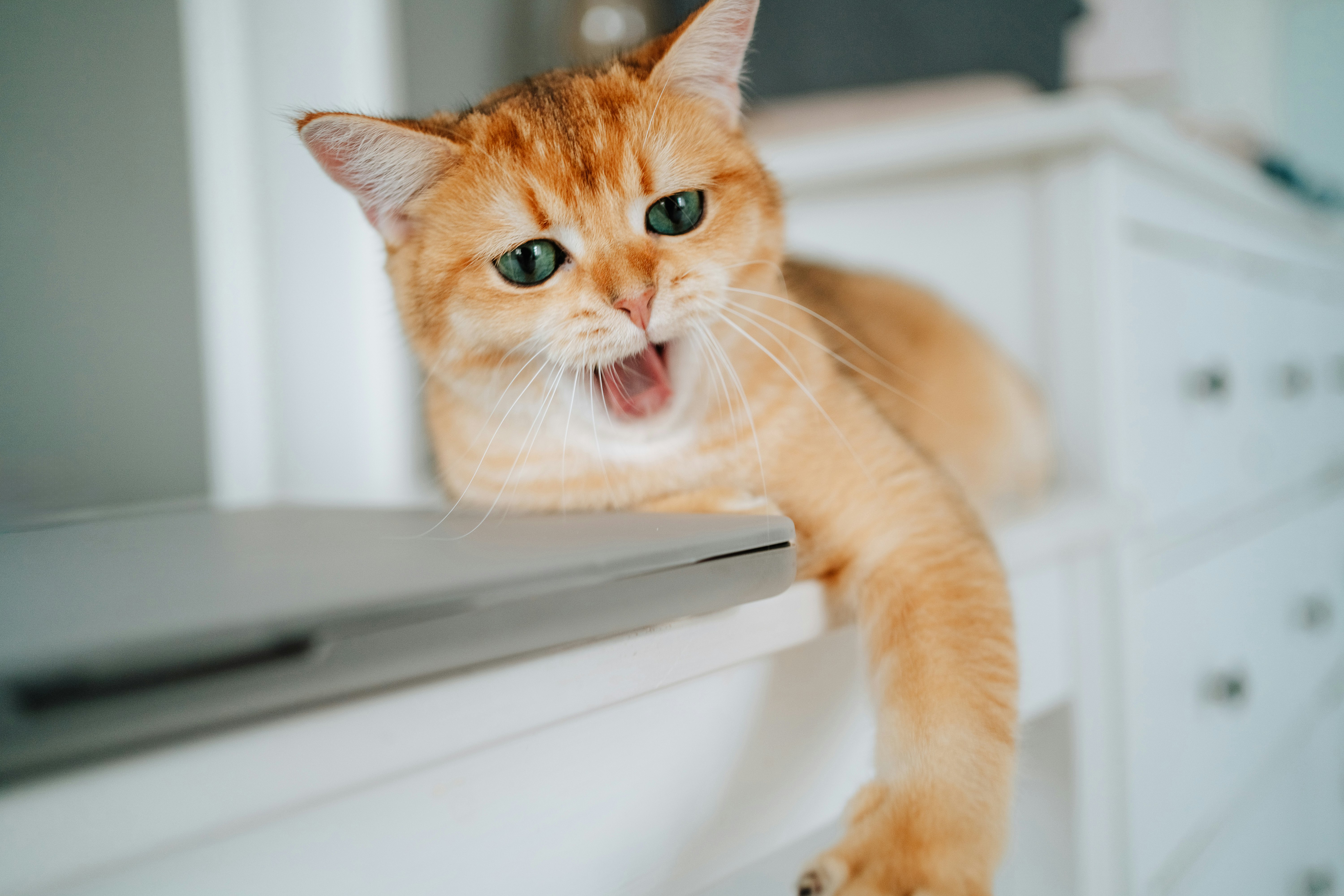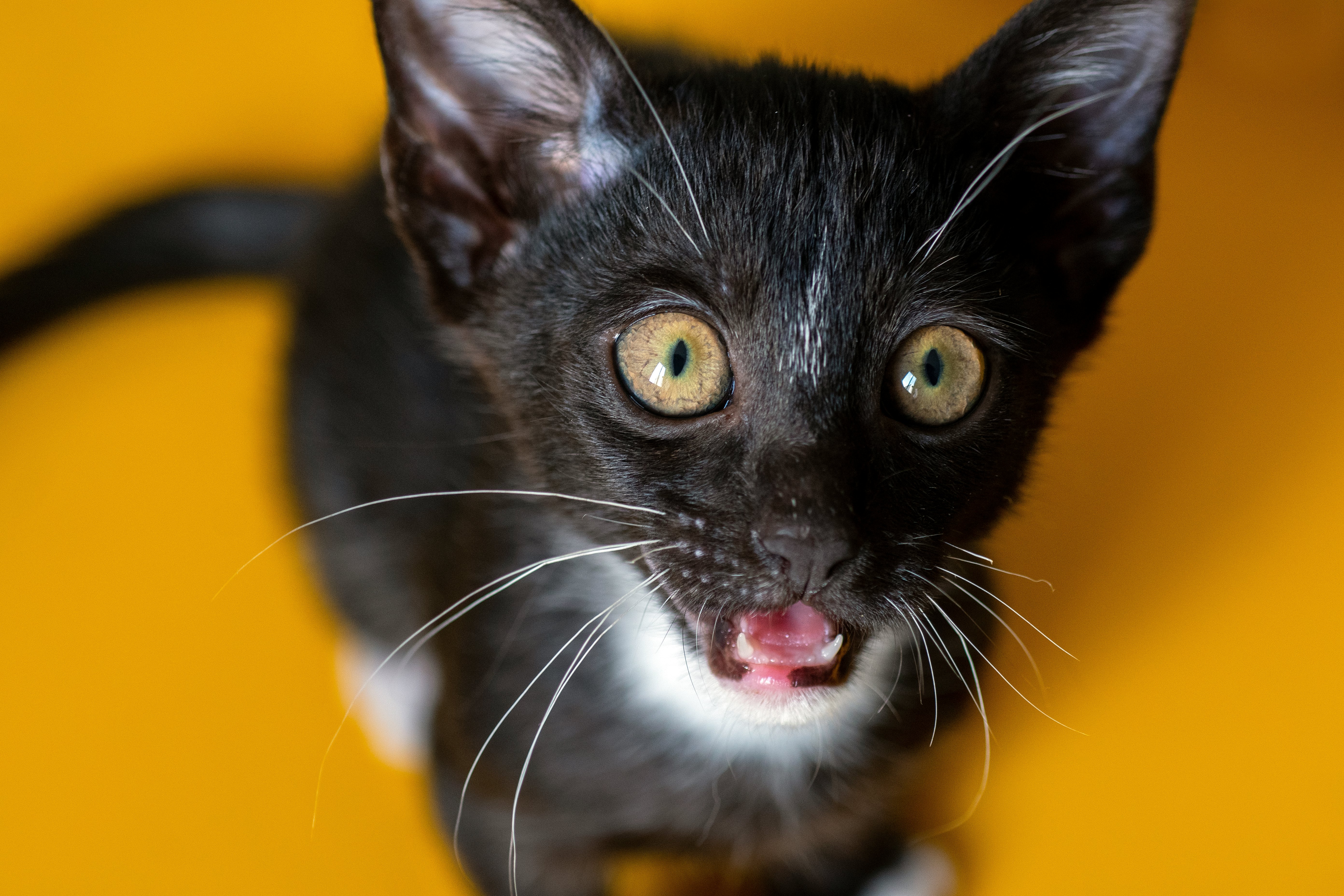
Once you’ve lived with a cat long enough, you might find yourself talking to it. Your cat meows at you and you’ll say something back — or even meow in response. This is a common exchange — for humans. While cats have a decently large vocabulary of specific sounds, meowing actually isn’t a primary one they use with other cats. But it is something they do with humans. But why?
Meowing first shows up in kittens trying to get their mother’s attention. “Where we see meowing is in kittens when they're seeking caretaking behavior from their moms,” Mikel Delgado, a cat behavior consultant in Sacramento, tells Inverse. “And then we also see it in adult cats, primarily directed towards human caretakers.” What we can glean from an evolutionary standpoint is that kittens evolved to meow at their mothers for attention, whether they’re hungry or in danger. Once humans began to domesticate cats about 12,000 years ago, cats learned they could also elicit a response from a human by meowing.
But just because cats meow at their humans the way kittens meow at their mother, Delgado says that doesn’t necessarily mean cats believe their humans are their mom. Between 2 and 4 months of age, kittens typically separate from their mothers. Many adult cats don’t have a relationship with their mothers, so while adult cats continue to meow at their humans, like kittens do at their mothers, it’s not definitely because they believe we’re their mom.
“I think what we can say is that cats consider us part of their family, but I don't think we can say specifically if they think we're more of a friend or a parent,” she says.

Humans also tend to respond when cats meow at us, which creates a cycle that cats learn: Cat meows, and the human does something. Perhaps if a cat meows by the door, the human will open it; if a cat meows by its food, the human will feed it; if a cat meows anytime, anywhere, the human will pay it attention. In effect, our cat is training us as much as we’re training our cat. So beware how you respond when your cat meows, because you could be conditioning them to associate certain behaviors.
That’s not to say that cats believe every sound that comes out of our mouth is a meow. Delgado says their vocalizations get very precise, and their sense of hearing is keener than ours. While cats meow, they also chirp, yowl, hiss, and make a plethora of other noises that carry distinct meanings. That means they can distinguish sounds very well, even from their humans. A 2023 study published in the journal Animal Cognition found that cats could differentiate speech when their human spoke to them in classic baby talk as opposed to a normal speaking voice.
The cat-human dialogue isn’t unique, of course. There have been other instances of mammals responding to the cries of another species. For example, Delgado says that deer have been known to respond to the sounds of crying human babies. It’s likely that “distress calls across species tend to be at a frequency that's very similar.” Animals of all types use sounds to communicate — it’s not exactly surprising that sometimes that communication occurs across species.
As such, there doesn’t always need to be motivation behind a meow. Some cats, Delgado says, are especially meowy simply because they love to chat with their humans. “I think some cats really like knowing that we're paying attention to them,” she says. And if the cat hasn’t got your tongue, feel free to meow right back.







